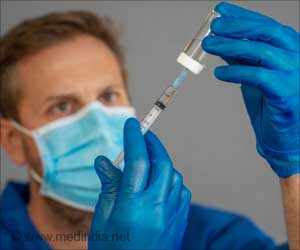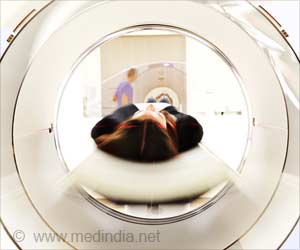. It is capable of spreading to individuals who have received two vaccine doses and to previously infected individuals.
In a new study supported by the European Union’s Health Emergency Preparedness and Response Authority (HERA), scientists from the Institut Pasteur and the Vaccine Research Institute, in collaboration with KU Leuven (Leuven, Belgium), Orlans Regional Hospital, Hpital Europen Georges Pompidou (AP-HP) and Inserm, studied the sensitivity of Omicron to antibodies compared with the currently dominant Delta variant.
The study aimed to characterize the efficacy of therapeutic antibodies, as well as antibodies developed by individuals previously infected with SARS-CoV-2 or vaccinated, in neutralizing this new variant.
They isolated the Omicron variant of SARS-CoV-2 from a nasal sample of a 32-year-old woman who developed moderate COVID-19 a few days after returning from Egypt.
The isolated virus was immediately sent to scientists at the Institut Pasteur, where therapeutic monoclonal antibodies and serum samples from people who had been vaccinated or previously exposed to SARS-CoV-2 were used to study the sensitivity of the Omicron variant.
They used rapid neutralization assays, developed by the Institut Pasteur’s Virus and Immunity Unit, on the isolated sample of the Omicron virus.
The scientists began by testing nine monoclonal antibodies used in clinical practice or currently in preclinical development. Six antibodies lost all antiviral activity, and the other three were 3 to 80 times less effective against Omicron than against Delta.
The antibodies Bamlanivimab/Etesevimab (a combination developed by Lilly), Casirivimab/Imdevimab (a combination developed by Roche and known as Ronapreve), and Regdanvimab (developed by Celtrion) no longer had any antiviral effect against Omicron.
The Tixagevimab/Cilgavimab combination (developed by AstraZeneca under the name Evusheld) was 80 times less effective against Omicron than against Delta.
“We demonstrated that this highly transmissible variant has acquired significant resistance to antibodies. Most of the therapeutic monoclonal antibodies currently available against SARS-CoV-2 are inactive,” comments Olivier Schwartz, co-last author of the study and Head of the Virus and Immunity Unit at the Institut Pasteur.
The scientists observed that the blood of patients previously infected with COVID-19, collected up to 12 months after symptoms, and that of individuals who had received two doses of the Pfizer or AstraZeneca vaccine, taken five months after vaccination, barely neutralized the Omicron variant.
But the sera of individuals who had received a booster dose of Pfizer, analyzed one month after vaccination, remained effective against Omicron.
Five to 31 times more antibodies were nevertheless required to neutralize Omicron, compared with Delta, in cell culture assays. These results help shed light on the continued efficacy of vaccines in protecting against severe forms of the disease.
This study shows that the Omicron variant hampers the effectiveness of vaccines and monoclonal antibodies, but it also demonstrates the ability of European scientists to work together to identify challenges and potential solutions.
Researchers concluded that the many mutations in the spike protein of the Omicron variant enabled it to largely evade the immune response. Ongoing research is being conducted to determine why this variant is more transmissible from one individual to the next and to analyze the long-term effectiveness of a booster dose.
Source: Medindia



